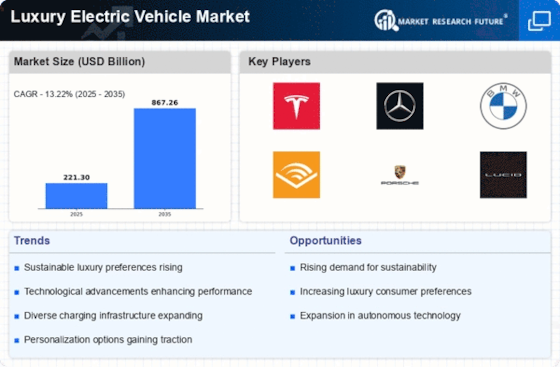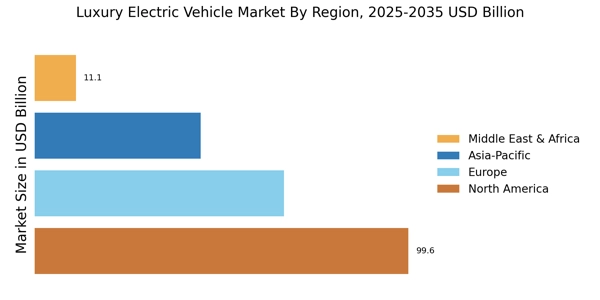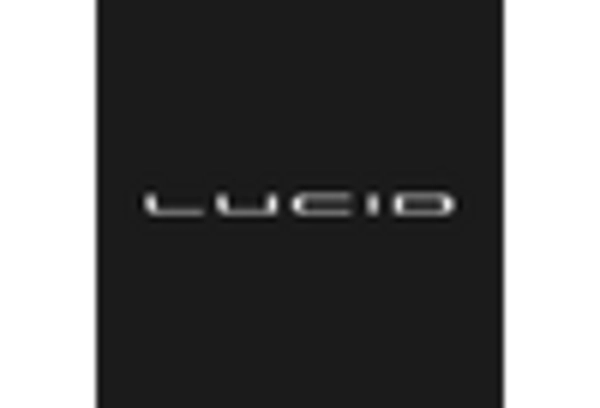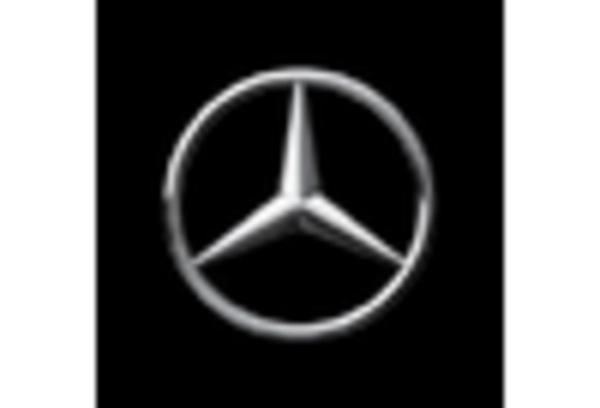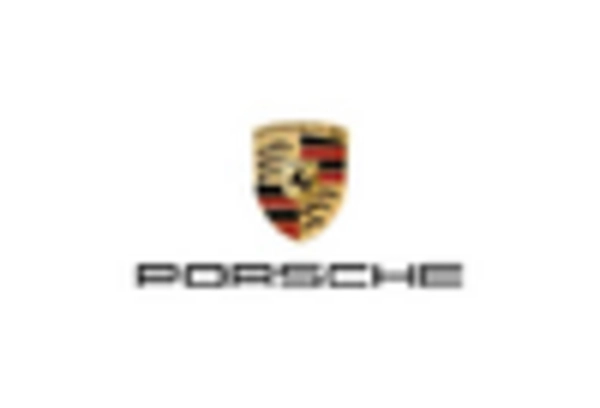Enhanced Charging Infrastructure
The development of robust charging infrastructure is a critical driver for the Luxury Electric Vehicle Market. As electric vehicle adoption increases, the availability of convenient and efficient charging solutions becomes paramount. In 2025, the expansion of fast-charging networks and the installation of charging stations in urban and rural areas are expected to alleviate range anxiety among luxury consumers. This enhanced infrastructure not only supports the practicality of owning a luxury electric vehicle but also encourages potential buyers to make the switch from traditional vehicles. Furthermore, partnerships between luxury automakers and charging network providers are likely to emerge, creating exclusive charging experiences for high-end consumers. As a result, the Luxury Electric Vehicle Market is poised for growth, driven by the increasing accessibility of charging options.
Government Incentives and Regulations
Government policies and incentives are significantly impacting the Luxury Electric Vehicle Market. Many countries are implementing stringent emissions regulations and offering financial incentives to promote electric vehicle adoption. For example, tax credits, rebates, and grants for electric vehicle purchases are encouraging affluent consumers to transition to luxury electric models. In 2025, it is anticipated that these incentives will continue to play a crucial role in driving sales within the luxury segment. Additionally, the establishment of low-emission zones in urban areas is likely to further incentivize the purchase of electric vehicles, as luxury consumers seek to avoid penalties associated with traditional combustion engines. Consequently, the Luxury Electric Vehicle Market stands to gain from favorable regulatory environments that support the growth of electric mobility.
Sustainability and Environmental Awareness
The Luxury Electric Vehicle Market is increasingly influenced by a growing emphasis on sustainability and environmental consciousness among consumers. As awareness of climate change and environmental degradation rises, affluent consumers are more inclined to invest in electric vehicles that align with their values. This shift is evidenced by a reported increase in electric vehicle sales, with luxury brands experiencing a notable uptick in demand. In 2025, the luxury electric vehicle segment is projected to account for a significant share of the overall electric vehicle market, reflecting a broader trend towards eco-friendly transportation solutions. The Luxury Electric Vehicle Market is thus positioned to benefit from this heightened focus on sustainability, as consumers seek vehicles that not only offer performance and luxury but also contribute positively to the environment.
Changing Consumer Preferences and Lifestyle
The Luxury Electric Vehicle Market is experiencing a shift in consumer preferences, particularly among younger, affluent buyers who prioritize sustainability and technology. This demographic is increasingly drawn to electric vehicles that offer not only luxury but also a commitment to environmental responsibility. As of 2025, surveys indicate that a significant percentage of luxury consumers are willing to pay a premium for electric vehicles that align with their values. This trend is reshaping the luxury automotive landscape, as manufacturers adapt their offerings to meet the evolving demands of this new consumer base. The Luxury Electric Vehicle Market is thus likely to see a diversification of product lines, with brands introducing models that cater specifically to the preferences of eco-conscious luxury buyers.
Technological Advancements in Electric Vehicles
Technological innovation plays a pivotal role in shaping the Luxury Electric Vehicle Market. Advances in battery technology, autonomous driving capabilities, and connectivity features are transforming the landscape of luxury electric vehicles. For instance, the introduction of solid-state batteries promises to enhance energy density and reduce charging times, making electric vehicles more appealing to luxury consumers. Furthermore, the integration of advanced driver-assistance systems (ADAS) is enhancing safety and convenience, which are critical factors for high-end buyers. As of 2025, the market is witnessing a surge in the adoption of these technologies, with luxury brands leading the charge in offering cutting-edge features. This technological evolution not only elevates the driving experience but also positions the Luxury Electric Vehicle Market as a frontrunner in automotive innovation.


